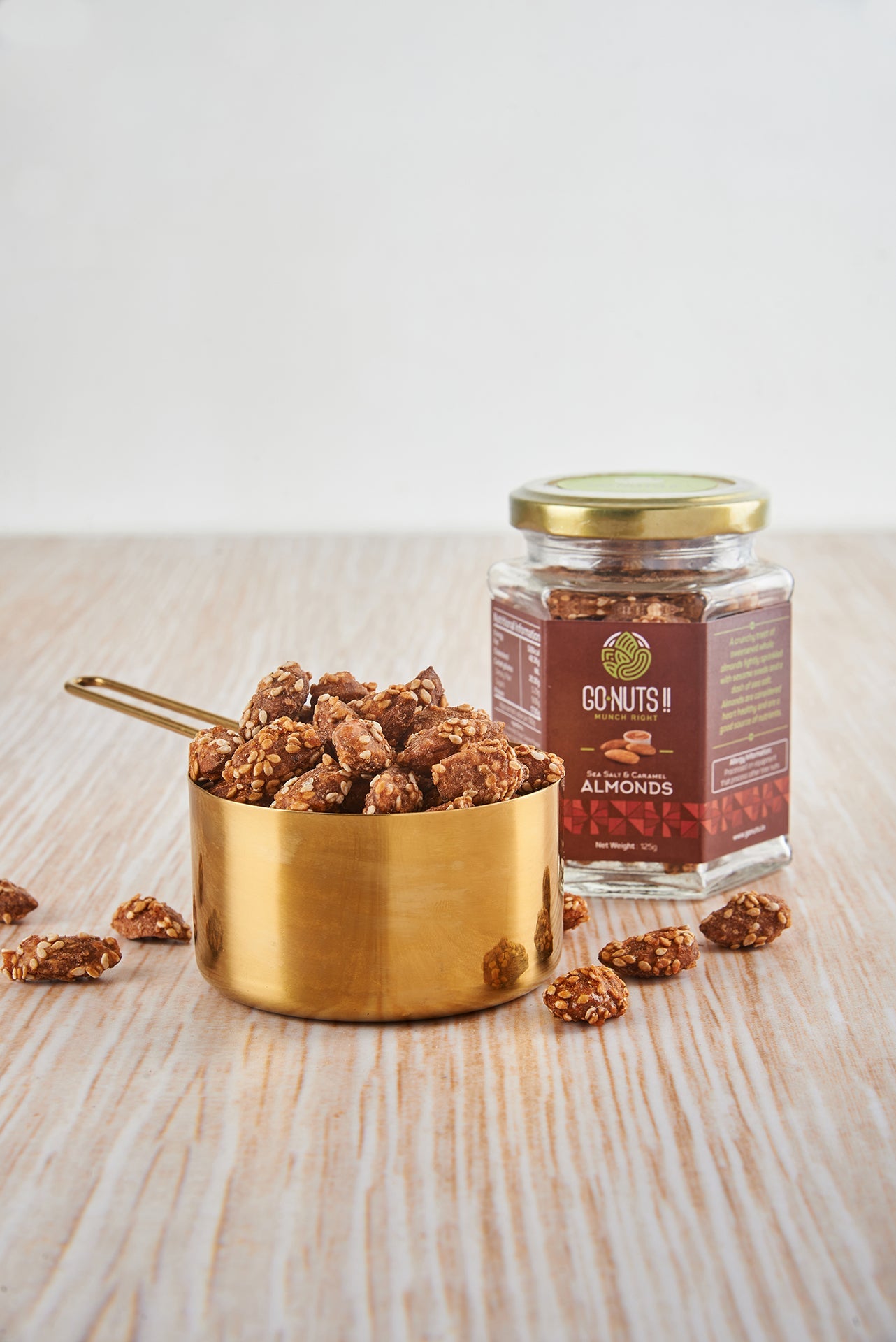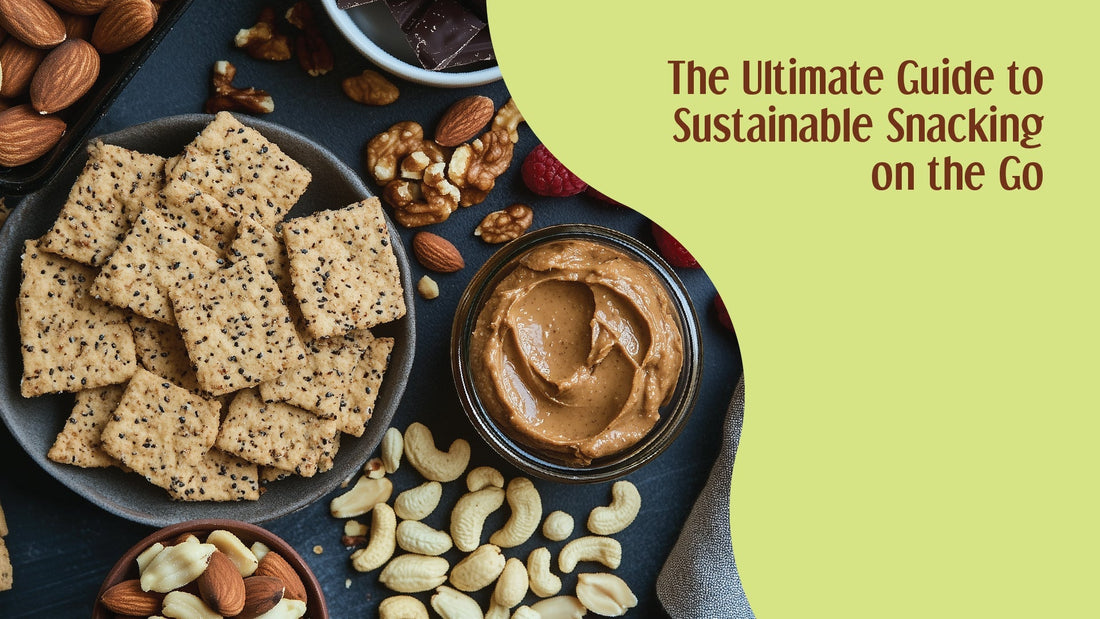We live in a world where convenience often trumps sustainability. Whether it’s grabbing a quick energy bar, reaching for a plastic-wrapped snack, or relying on single-use packaging, on-the-go snacking has become synonymous with waste. But what if we could fuel our bodies while also nourishing the planet?
Enter sustainable snacking—a way to make mindful, eco-friendly choices without compromising on taste, health, or convenience. By swapping out processed, over-packaged options for nutrient-rich, plant-based, and ethically sourced snacks, you can significantly reduce waste, lower your carbon footprint, and embrace a healthier, more sustainable lifestyle.
Here’s your ultimate guide to guilt-free snacking on the go, packed with tips, hacks, and sustainable food swaps that are good for you and the planet.
Why Sustainable Snacking Matters
Before we jump into solutions, let’s talk about why it matters.
-Food Waste & Packaging Pollution: Single-use plastic from snack packaging contributes to landfills and ocean pollution. Choosing zero-waste snacks or reusable packaging can help cut down on this growing problem.
-Carbon Footprint of Snacks: Mass-produced snacks often contain palm oil, excessive processing, and artificial ingredients, all of which contribute to environmental damage. Opting for plant-based, locally sourced snacks helps reduce emissions.
-Health Benefits of Conscious Eating: Highly processed snacks are filled with preservatives, refined sugars, and artificial additives. Sustainable snacks tend to be whole, unprocessed, and packed with essential nutrients. By rethinking our snacking habits, we not only make eco-friendly food choices but also improve our well-being.
Best Sustainable Snacks for On-the-Go
Looking for portable, nutritious, and planet-friendly snacks? Here are some eco-conscious choices to keep in your bag, car, or office drawer.
1. Nuts & Seeds: The OG Sustainable Snack
Why? Minimal processing, long shelf life, high in protein, and packed with healthy fats. Plus, they require little to no packaging if bought in bulk.
Best Picks:
Almonds, walnuts, cashews, and pistachios – Energy-boosting and rich in fiber
Chia, flax, and pumpkin seeds – High in omega-3s and plant-based protein
Eco Tip: Buy natural and naturally sourced nuts in bulk using reusable jars or bags to avoid plastic waste.
2. Fresh & Dried Fruits: Nature’s Candy
Why? Whole, unprocessed, and naturally sweet, fruits are rich in vitamins, fiber, and antioxidants.
Best Picks:
Apples, bananas, and oranges – Naturally packaged & perfect for travel
Dried figs, apricots, and dates – A long-lasting energy source with no added sugar
Eco Tip: Choose locally sourced and seasonal fruits to reduce carbon emissions from long-distance transport.
3. Dark Chocolate & Energy Bars: The Guilt-Free Indulgence
Why? Good-quality dark chocolate is rich in antioxidants and energy bars (when made with clean ingredients) can be a nutritious, high-protein snack.
Best Picks:
Natural and ethically sourced Dark chocolate (70%+ cocoa) – Supports sustainable cocoa farming
Homemade granola or energy bars – No artificial additives or excess packaging
Eco Tip: Look for Fair Trade, organic-certified brands that support ethical farming.
4. Whole-Grain Crackers & Trail Mix: The Crunchy Alternative
Why? A great alternative to chips, whole grains provide slow-releasing energy while homemade trail mixes are a nutrient powerhouse.
Best Picks:
Quinoa or oat-based crackers – High in fiber and protein
DIY Trail Mix with nuts, seeds, dried fruits, and dark chocolate – Customizable & waste-free
Eco Tip: Avoid single-use plastic packaging; store your snacks in glass jars or fabric snack bags.
5. Nut Butters & Hummus: The Versatile Spread
Why? High in protein, healthy fats, and perfect for dipping fruits, veggies, or whole-grain crackers.
Best Picks:
Almond butter, peanut butter, or cashew butter – Creamy, plant-based, and nutrient-dense
Hummus (chickpea-based dip) – Protein-packed and fiber-rich
Eco Tip: Choose unsweetened, palm oil-free nut butters in glass jars instead of plastic tubs.
Sustainable Snacking Hacks
1. Ditch Single-Use Packaging
Say NO to plastic-wrapped snacks. Instead, store your food in:
Reusable silicone bags
Glass jars or stainless steel containers
Compostable paper wraps
2. Buy in Bulk
Reduce packaging waste by purchasing bulk nuts, seeds, dried fruits, and whole grains. Bring your own containers to refill at zero-waste stores.
3. Opt for Local & Seasonal
Supporting local farmers and small businesses reduces carbon emissions and ensures fresher, healthier snacks.
4. Make Your Own Snacks
Homemade snacks are healthier, more affordable, and eliminate unnecessary packaging. Try making, DIY granola bars with oats, nuts, seeds, and honey
Homemade roasted chickpeas for a crunchy, high-protein snack
5. Look for Ethical & Sustainable Certifications
If buying pre-packaged snacks, check for labels like:
Fair Trade (ethical sourcing)
Rainforest Alliance Certified (sustainable farming)
USDA Organic (chemical-free)
Snacking With a Purpose
Sustainable snacking isn’t just about what you eat—it’s about how you eat. Every small swap, from choosing zero-waste packaging to supporting ethical brands, contributes to a healthier planet and a healthier you.
So, the next time you're craving a snack, ask yourself: Is this good for me AND the environment? If the answer is yes, you're already on the path to becoming a mindful, eco-conscious snacker.
Go Nuts!! Snacking Sustainably, One Crunch at a Time
At Go Nuts, we believe in taking only what’s needed, in the quantity that’s needed, ensuring balance with nature. Our sustainable glass jars are designed for reuse—whether for storage, DIY crafts, or upcycled art. Plus, our recycling-oriented approach means you can snack guilt-free, knowing sustainability is at the heart of everything we do. Go Nuts—better for you, better for the planet.




